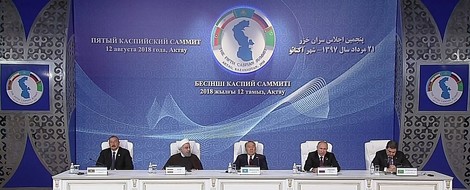Your podcast discovery platform
Curious minds select the most fascinating podcasts from around the world. Discover hand-piqd audio recommendations on your favorite topics.

piqer for: Climate and Environment Globalization and politics Health and Sanity
Mona Silavi is a human and women’s rights activist from the Ahwaz region in Iran. She obtained her bachelor in psychology and specialized in children and adolescence psychology at Damascus University, faculty of psychology and education. She holds a master degree in good governance and human rights in MENA region from Ca’ Foscari University in Venice. She started her activism in Damascus as member of Ahwazi Arab student association. Mona Silavi is a Project Officer at the Unrepresented Nations and Peoples Organization (UNPO) and is the coordinator for topics concerning freedom of religion and belief. She is also a spokesperson of the Al-Ahwaz Democratic Solidarity Party (DSPA). Since 2014 Ms Silavi lives in Belgium as a political refugee
In Fear Of USA, Iran Becomes Closer To Russia
On Sunday, 12. August 2018, nearly two decades after the beginning of intense negotiations, the five states bordering the Caspian Sea signed a landmark deal on the Sea’s legal status in the Kazakh city of Aktau.
The Caspian Sea is the largest inland body of water on Earth by area and is therefore also referred to as sea. Until the collapse of the Soviet Union, Iran held 50 percent of the lake’s resources. When Azerbaijan, Kazakhstan, and Turkmenistan became independent, a new agreement needed to be signed to prevent any conflicts over the potential use of this strategic lake.
In the light of the US withdrawal from the nuclear deal, Iran’s most urgent concern is the prevention of any American or Israeli military presence in the Caspian Sea. On the other hand, it also has to consider Russian interest to block the Chinese geopolitical agenda with ambitions to gain access to the lake through Turkmenistan.
After sanctions were imposed by the United States on both Russia and Iran, it became more important for these countries to join forces in order to minimize the effects of such sanctions.
Iranian president Mr. Rouhani mentioned potential plans of connecting the Caspian Sea to the Gulf of Oman, an ambitious project of constructing a water channel passing through Iran’s largest deserts. In case of implementation, this project would connect Russia’s frozen seas to the warm waters of Southern Iran. This undertaking appears appealing on paper, but would potentially cause an environmental disaster. In spite of these detrimental effects, Presidents Rouhani and Putin were positive about this agreement. Iranian MP Mahmoud Sadeghi informed the public on his twitter account that other members of parliament have not been informed about the details of the agreement, and expressed his concerns about this project.
The public opinion in Iran is also negative towards this agreement, as they think Iran would be receiving the smallest share in favor of Russia.
